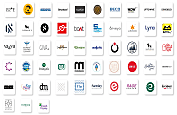
Starting a new business can be tricky, and in the world of business, the garage stands as a symbol of humble beginnings, a testament to the power of innovation and the indomitable spirit of entrepreneurship. It's where ideas take shape amidst cluttered workbenches, and dreams are fueled by the scent of motor oil and ambition. This is the birthplace of disruption, where the seeds of what will become industry titans are often sown.
Lately, a significant change has been observed in the professional goals of individuals worldwide. The charm of starting one's own business is increasingly appealing, with a growing number choosing to pave their own way instead of following the conventional route of wage-based jobs. The 2019/2020 Global Entrepreneurship Monitor (GEM) report indicates that the world has around 582 million people who have embarked on entrepreneurial ventures. This trend goes beyond the appeal of being independently in charge; it encompasses the aspiration to make a meaningful impact and leave a lasting legacy.
The proliferation of digital platforms, easier access to international markets, and more readily available resources have reduced the hurdles for budding entrepreneurs. These factors have made the prospect of launching a startup without investment more feasible than before.
The rise of inspirational startup success stories to large corporations is not just a narrative of success; it's a narrative of transformation. It's about how visionaries turn cramped spaces into incubators of innovation. These narratives are not merely about the physical space of a garage but about the mindset it represents—one where limitations are viewed as challenges to overcome and where resource constraints are seen as a crucible for creativity.
1. Apple INC

Apple's humble beginnings in Steve Jobs's garage in Los Altos in 1976 have become an emblematic story of entrepreneurial spirit. Jobs, alongside his technically adept companion Steve Wozniak and with organizational help from Ronald Wayne, dreamt of democratizing computer technology for the everyday user, not solely for corporations or enthusiasts.
Their debut offering, the Apple I, broke the mold as a pre-assembled motherboard kit, distinct from its contemporaries that typically required assembly. It was bare-bones, lacking a case, power source, keyboard, or screen – a stark contrast to the polished products we associate with Apple today. Wozniak's technical brilliance, combined with Jobs' foresight, set the stage for the Apple I and, later, the Apple II, paving the way for the personal computer revolution.
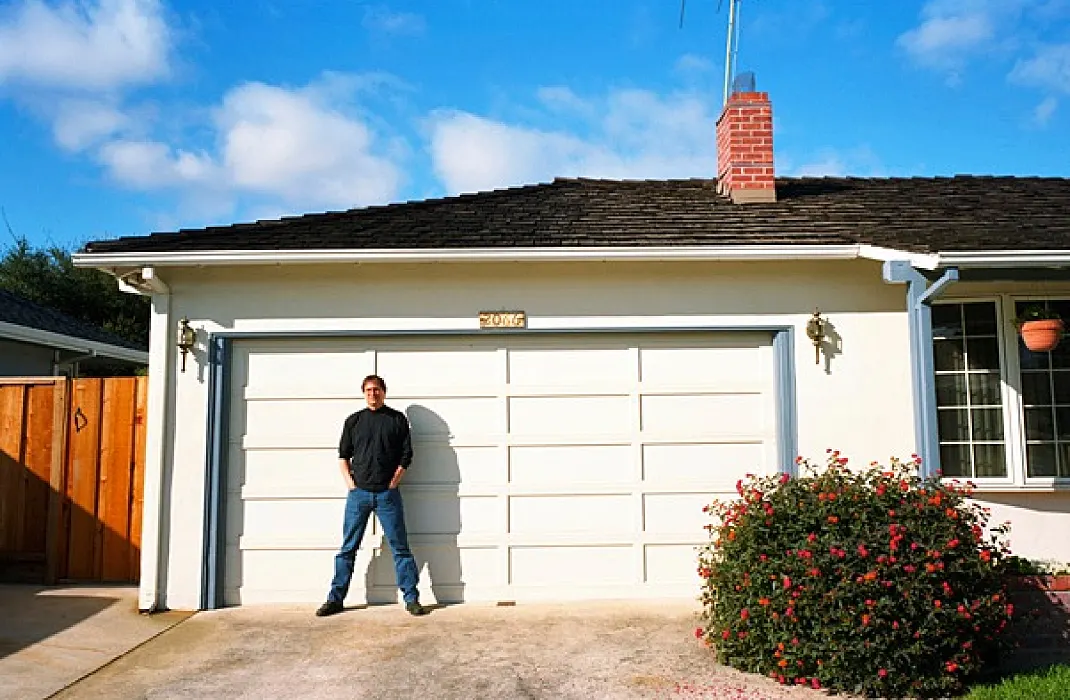
The ascent of Apple from its modest inspirational startup success stories to a tech titan is a tale woven with groundbreaking innovations and defining industry achievements. The 1984 Macintosh launch brought the graphical user interface to the mainstream, and the introductions of the iPod in 2001, the iPhone in 2007, and the iPad in 2010 continually redefined tech's frontier.
Jobs' triumphant return to Apple in 1997 after a stint away was a critical juncture, signaling the start of an extraordinary corporate resurgence. With Jobs at the helm, Apple honed its product range, optimized its operations, and reinvented the retail experience with its Apple Stores.
Now, Apple stands as a beacon of what creativity, a keen sense of design and branding, and a continuous innovation drive can achieve. More than just producing gadgets, Apple has crafted a comprehensive ecosystem that melds hardware, software, and services, along with cultivating a devoted customer following. With the languages that Apple created, many mobile app development companies leverage them to create applications compatible with their Apple’s devices.
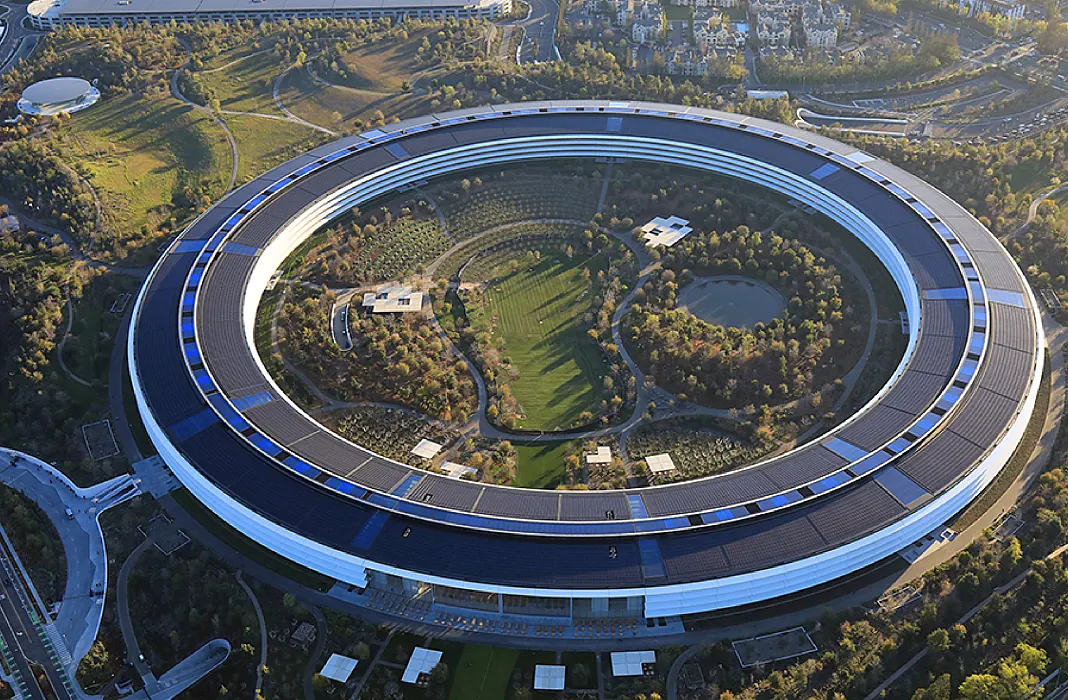
2. Google INC

In 1998, a garage in Menlo Park, California, became the place to study about as it would go on to change the internet forever. It was the place where Larry Page and Sergey Brin, two ambitious Ph.D. candidates from Stanford, started on a quest to streamline the world's information, making it easily accessible to all and beginning their inspirational startup success stories. And the outcome resulted in a search engine named Google (originally dubbed Backrub). It was a nod to the astronomical number 'googol,' signifying their goal to bring order to the vast expanse of the internet.

Google stood out from the beginning with its clean interface, exceptional startup business plan, and groundbreaking algorithm. This algorithm shifted the landscape by evaluating a website's importance based on the web's collective acknowledgment, measured through links.
In their story of successful startups, their first headquarters, Susan Wojcicki's garage, was small. However, it represented more than just a storage area for servers and desks. It was a microcosm of the playful yet determined ethos that would become synonymous with Google's workplace culture. Wojcicki, who would go on to be YouTube's CEO, was instrumental in Google's early days by lending this space to the robust team of professionals we see today.
Before long, Google outpaced its garage beginnings, relocating to a proper office in Palo Alto and introducing AdWords. This advertising system matched businesses with relevant searches, setting the stage for Google's economic triumph.
Now, under the umbrella of Alphabet Inc., Google stands tall as an industry giant, with ventures ranging from cloud services to pioneering autonomous vehicles. Yet, at its heart, it remains true to its foundational principle: to organize and disseminate information. With interest into AI, the Android operating system, and numerous other tech frontiers, Google's narrative is a testament to relentless progression, anchored by the enduring value of information.
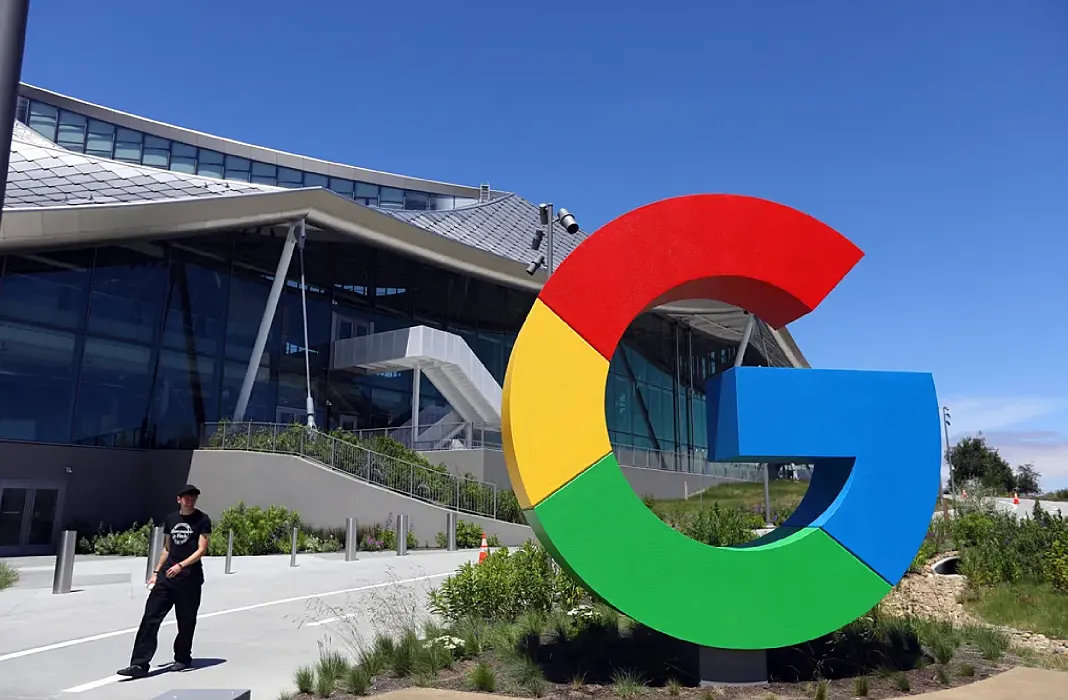
3. Microsoft
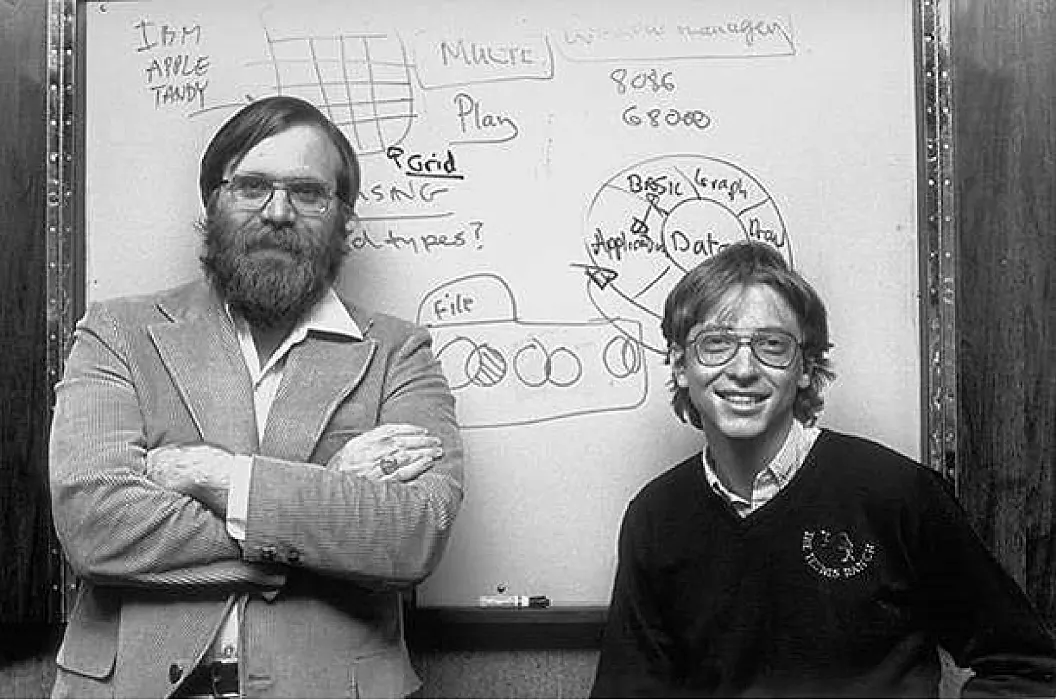
The narrative of Microsoft traces back to a modest garage in Albuquerque, New Mexico. It’s a tale that began much earlier, though, with the childhood camaraderie of Bill Gates and Paul Allen. Bonded by a love for computer programming, they dreamt of a future saturated with personal computing—envisioning a computer on every desk and in every home. In 1975, Microsoft sprang to life from their vision, its name a blend of "microcomputer" and "software."
Gates and Allen first made waves by crafting a BASIC language interpreter for the Altair 8800, an early personal computer pioneer. This feat didn’t just turn heads; it cemented Microsoft’s place in the rapidly evolving software landscape.
In its infancy, Microsoft was known for developing versatile software across various platforms, a clever strategy that laid the groundwork for monumental success. The company’s trajectory took a sharp turn upon crafting MS-DOS for IBM’s inaugural personal computer, which soon became the linchpin of 1980s PC computing.
1985 marked a milestone with the debut of Windows, transforming MS-DOS with a user-friendly graphical interface. Windows, initially met with a tepid response, would eventually become synonymous with the PC experience. Microsoft didn’t stop there, venturing into office software with Microsoft Office, back-end computing with enterprise servers, and online exploration with Internet Explorer.
Led initially by Gates and subsequently by Steve Ballmer, Microsoft carved out a reputation for hard-nosed business tactics, which, despite legal entanglements, did not hinder its growth. The company navigated through the tumultuous dot-com era and emerged ready to tackle the new century.
In 2023, under Satya Nadella’s leadership, Microsoft reimagined its purpose, diving into the cloud with Azure, exploring artificial intelligence, and innovating in hardware with the Surface series. The company’s journey from a simple garage to a global powerhouse underscores the enduring significance of visionary thinking and provides a blueprint on how to start an app business.
4. Amazon
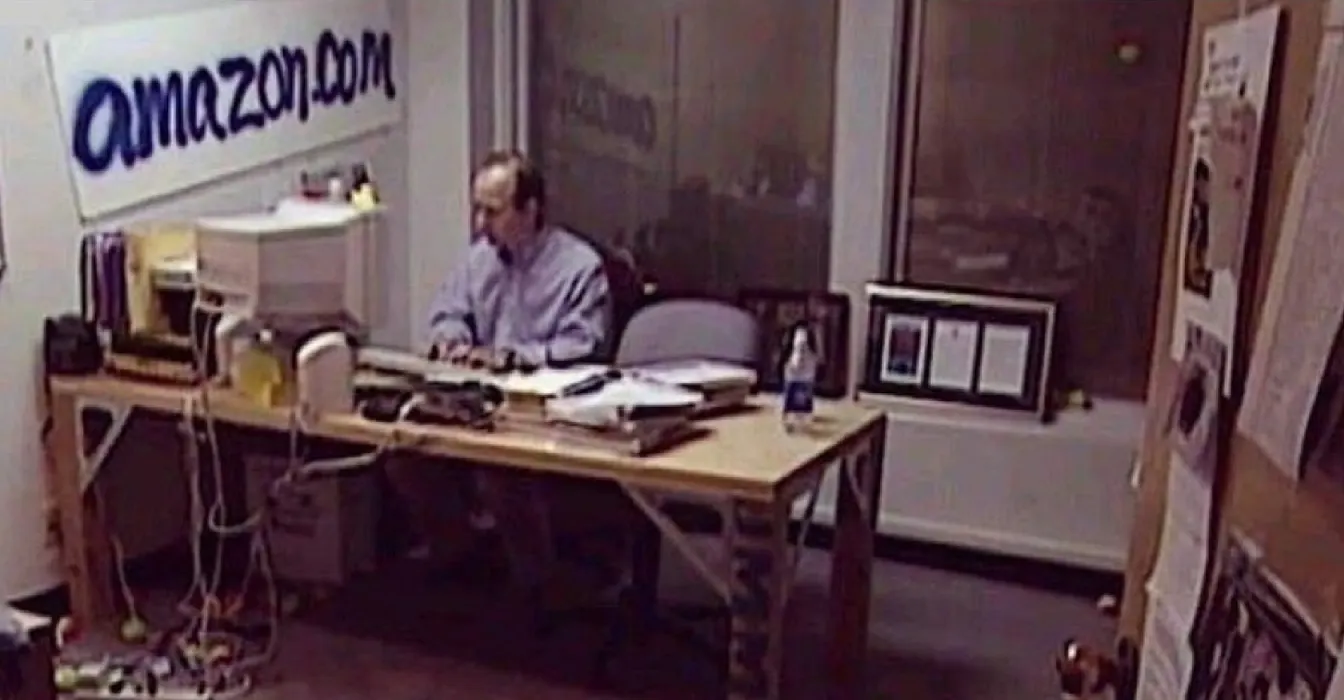
Amazon’s journey from a small startup in a garage to an e-commerce and cloud computing behemoth is one of the best startup success stories, including vision, ambition, and reinvention. In 1994, Jeff Bezos founded Amazon in his garage in Bellevue, Washington, with the dream of building a business that could capitalize on the rapid growth of internet use. His vision was to create an online bookstore that could offer more books than a physical store could ever accommodate.

Bezos started Amazon after leaving a well-paying job on Wall Street, driven by the realization that the internet was growing at 2300% annually. He created a list of 20 products that could be marketed online and eventually decided that books were the most viable option. The initial setup in the garage included three Sun Microstations, and the servers were built using cheaper and less powerful desktop computers. The company was run with a handful of employees, packing and shipping boxes of books to all corners of the US.
In July 1995, Amazon.com went live, and it sold books across the United States and in 45 foreign countries within 30 days. In two months, sales reached $20,000 a week, growing faster than Bezos and his startup team had envisioned.
Amazon's initial public offering (IPO) in 1997 was a critical moment, providing the capital that would allow for rapid expansion in terms of products and services. It wasn’t just an online bookstore for long; it quickly transformed into a one-stop shop for everything online, pioneering features like customer reviews and personalized recommendations.
The launch of Amazon Prime in 2005 was another game-changer, creating a loyal customer base through its subscription-based model that offered free two-day shipping. Bezos’ foresight continued with the introduction of Amazon Web Services (AWS) in 2006, which would become the backbone of many internet applications and now leads the cloud services industry.
Today, Amazon is not just an online retailer but a leader in cloud computing and AI. The company has even entered the area of film and television production with Amazon Prime. It has redefined logistics, supply chain management, and customer service, often setting the standards that other businesses aspire to meet.

5. Hewlett-Packard (HP)

Hewlett-Packard, often known as HP, has one of the most inspirational startup success stories in Silicon Valley's history. The company was started in a one-car garage at 367 Addison Avenue in Palo Alto, California, by two Stanford University graduates, Bill Hewlett and Dave Packard. In 1939, with an initial investment of merely $538, they started their enterprise, which would become the birthplace of Silicon Valley and one of the best startup success stories.
HP's first product was an audio oscillator—an electronic instrument used to test sound equipment. The Model HP200A Audio Oscillator was a more affordable and yet more reliable option compared to the oscillators available at the time, marking the beginning of a series of startup success stories. Their first big client was Walt Disney Studios, which purchased eight oscillators to develop and test the innovative sound system for the movie "Fantasia."

The garage where HP started was a place of experimentation and innovation, combining technical prowess with a forward-thinking business approach. The close partnership and friendship between Hewlett and Packard would become the basis of the famous HP Way, a set of management practices that included deep respect for employees and contributing to the motivational startup stories that would inspire generations.
The HP Way was not just about running a successful business but also about making a contribution to society. This ethos helped HP to rapidly expand its product line and global footprint over the next several decades, moving from electronic instruments to computing and printing solutions. The company is credited with many firsts, including the first handheld scientific calculator in 1972 and the HP-35, which made the slide rule obsolete and added to their list of inspirational startup stories.
Today, the original garage is a private museum and a California Historical Landmark. It stands as a symbol of American ingenuity and entrepreneurial spirit, adding to the rich tapestry of motivational startup stories.

6. Harley-Davidson

The Harley-Davidson brand’s inception is probably one of the most inspiring small business stories. It all started in a simple Milwaukee shed in 1903, where William S. Harley and Arthur Davidson started their ambitious business idea for a startup: to engineer a motorized bicycle. This venture set the foundation for what would become a legendary name in motorcycles and an example of small business to big business success stories.
Harley and Davidson's initial creation was a basic but inventive loop-framed motor bicycle that had a lot of problems at the start. However, with Walter Davidson joining the effort, they quickly refined their design, producing a motorcycle that was robust enough to handle Milwaukee's topography and gained immediate local acclaim. Before long, they manufactured three more motorcycles, a step that many tips for starting a small business would later cite as a pivotal moment of perseverance and vision.
Harley-Davidson's growth was meteoric in the following years. The business formalized into an incorporated entity in 1907, by which time they had moved operations from the shed to a full-fledged factory. Their commitment to excellence set them apart in a time when numerous motorcycle manufacturers offered a blueprint for small business success stories.
The company cemented its standing during World War I when the U.S. military requisitioned over 20,000 motorcycles, which bolstered Harley-Davidson's expansion and innovation, marking one of the most significant small business to big business success stories. Post-war hardships like the Great Depression tested the company's endurance; they persevered by broadening their range and focusing on innovation, a strategy often recommended in tips for starting a small business. The Harley-Davidson's allure was enhanced by the introduction of the V-twin engine, the emblematic "Bar and Shield" logo, and the bike's signature rumble.

In recent times, Harley-Davidson has evolved and expanded its role as more than just a motorcycle manufacturer. It continues to grapple with challenges, such as global competition and shifting market trends, but remains a steadfast symbol of independence and authenticity, adding to the collection of inspiring small business stories and ultimately leading to a quintessential example of small business success stories.

7. The Walt Disney Company
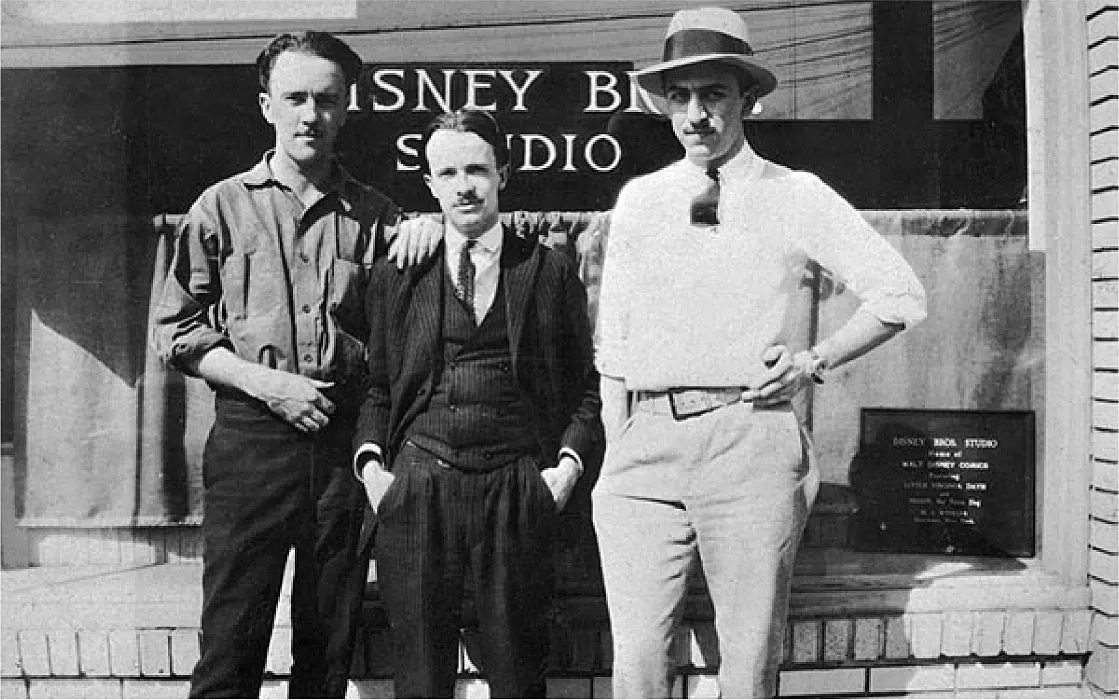
The narrative of The Walt Disney Company is one of the most inspirational startup success stories, a celebration of imagination and tenacity, having its roots in a modest garage owned by Walt Disney's uncle, Robert Disney, in Los Angeles. Disney established the original Disney studio, embarking on what would become an extraordinary revelation into animation and one of the best startup success stories in history.
With nothing but a suitcase and a film reel of "Alice's Wonderland" from the "Alice Comedies," a hybrid series of live-action and animation, Walt arrived in California. It was within the confines of their uncle's garage that the Disney brothers commenced production of the "Alice Comedies," marking the beginning of what would be a series of inspirational startup stories. Their early success with these shorts led to a contract with a distributor in New York, enabling them to transition from the garage to a bona fide studio, a pivotal moment in startup success stories.
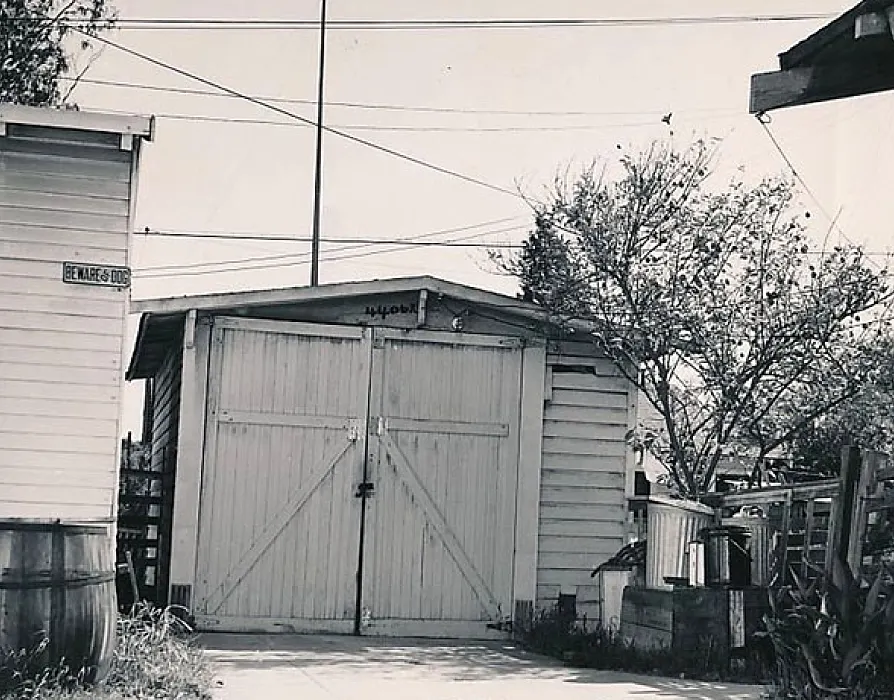
This initial triumph laid the groundwork for the advent of Mickey Mouse in 1928, a character brought to life by Walt's design and the animation skills of Ub Iwerks. Mickey's introduction to audiences in "Steamboat Willie," a pioneering sound-animated short, marked the character's and the Disney brothers' ascent to stardom, setting a foundation for continued innovation and adding to the motivational startup stories that would inspire generations.
The legacy of The Walt Disney Company also branches out to the film sector, including the creation of Disneyland, and branching into varied sectors like live-action films, television, and integrating other major brands such as Pixar, Marvel, and Lucasfilm, all contributing to the tapestry of inspirational startup success stories.
Today, The Walt Disney Company is a classic example of the power of stories, comprising a wide range of segments from media networks to theme parks, studio entertainment, consumer products, and digital platforms.
Disney's saga shows that boundless creativity, audacious goals, and relentless dedication can manifest even the most whimsical of visions into tangible experiences. The garage on Kingswell Avenue has evolved from a mere starting point to a symbol of the dawn of an epoch in the entertainment landscape and a cornerstone among the most motivational startup stories.
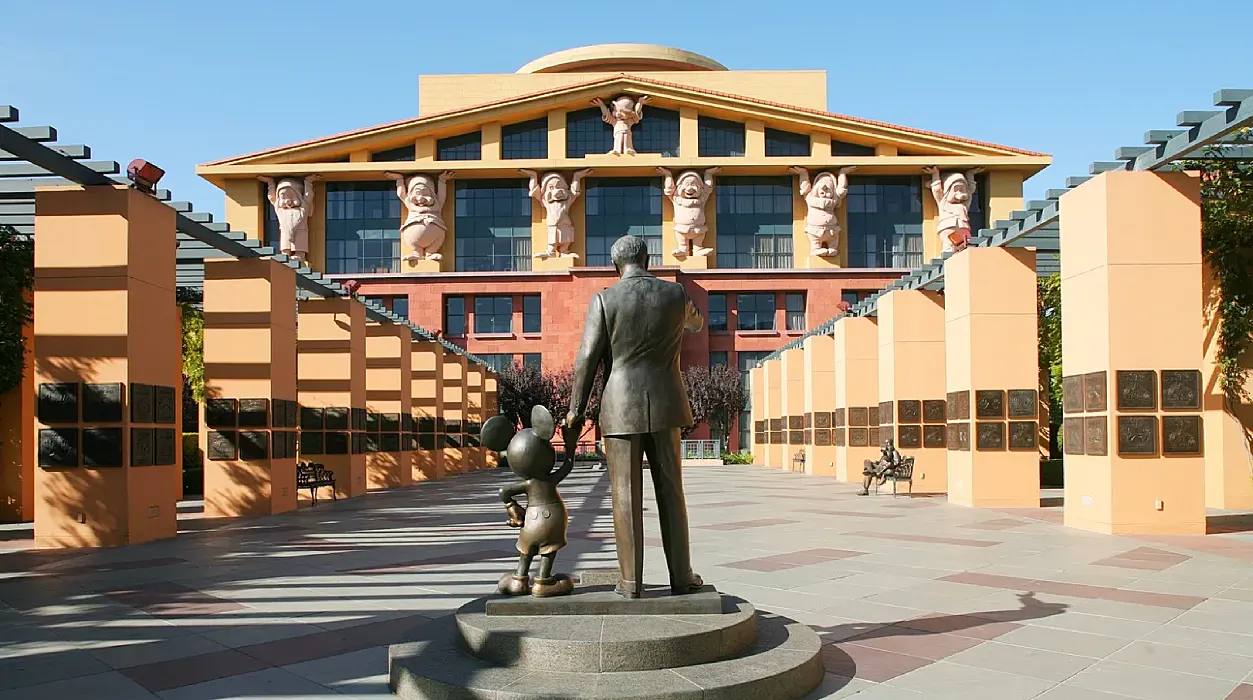
8. The Yankee Candle Company

The Yankee Candle Company’s story is a fragrant tale of entrepreneurial spirit kindled in a family garage, one that has become a beacon among startup stories of successful entrepreneurs. It began in 1969 when 16-year-old Mike Kittredge melted some crayons to make a candle as a Christmas gift for his mother. Little did he know that this act of resourcefulness would ignite a business startup success story that would grow to become one of the largest candle manufacturers in the United States.
Neighbors and friends showed interest in Kittredge’s handmade candles, and sensing an opportunity, he started producing them in larger quantities in his family’s garage in South Hadley, Massachusetts. The candles were unique because they were scented, which was not common at the time, marking the inception of what would be one of the start-up business success stories of the era. His first retail store opened in 1975, and it wasn't long before the Yankee Candle Company became synonymous with high-quality, scented candles.
Kittredge’s business model, which could be seen as the best way to start a business, was based on direct selling to customers and an immersive retail experience. Yankee Candle’s flagship store in South Deerfield, Massachusetts, became a destination in itself, featuring a candle-making museum and interactive exhibits. The brand's growth was also bolstered by a focus on storytelling through scents, with each fragrance crafted to evoke memories and emotions, a strategy that has been central to many business startup success stories.
Innovation played a key role in Yankee Candle’s expansion, making it one of the notable online startup success stories. The company was one of the pioneers in using catalog sales and e-commerce to reach a wider audience. Their mail-order business allowed customers to experience Yankee Candle’s products from anywhere, and their website continued this tradition by providing a broad selection of candles and home fragrance products online.
Yankee Candle has remained dedicated to the craft of candle making, producing a wide array of scents and styles, from traditional jar candles to seasonal releases and custom options. The company's commitment to quality has helped it to remain a leader in a market that has seen increased competition, and its journey from a simple garage to over 475 stores nationwide and a presence in over 50 countries stands as a testament to the power of a homemade gift turned into a global business, and a shining example of the best way to start a business.

9. Mattel

Mattel’s story is a classic example of startup stories of successful entrepreneurs, one of innovation and the transformative power of play, starting not with a toy but within the confines of a Southern California garage workshop where picture frames were the primary product. Established by Harold "Matt" Matson and Elliot Handler in 1945, Mattel initially found its footing in post-war America by selling picture frames, but it wasn't long before Elliot's wife, Ruth Handler, saw the potential in using scraps from the frames to create dollhouse furniture, illustrating the best way to start a business by leveraging available resources.
This shift to toy manufacturing proved to be a good move for Mattel and a highlight in start-up business success stories. The dollhouse furniture was a success, leading the company to shift its focus entirely to toys, marking its place in business startup success stories.
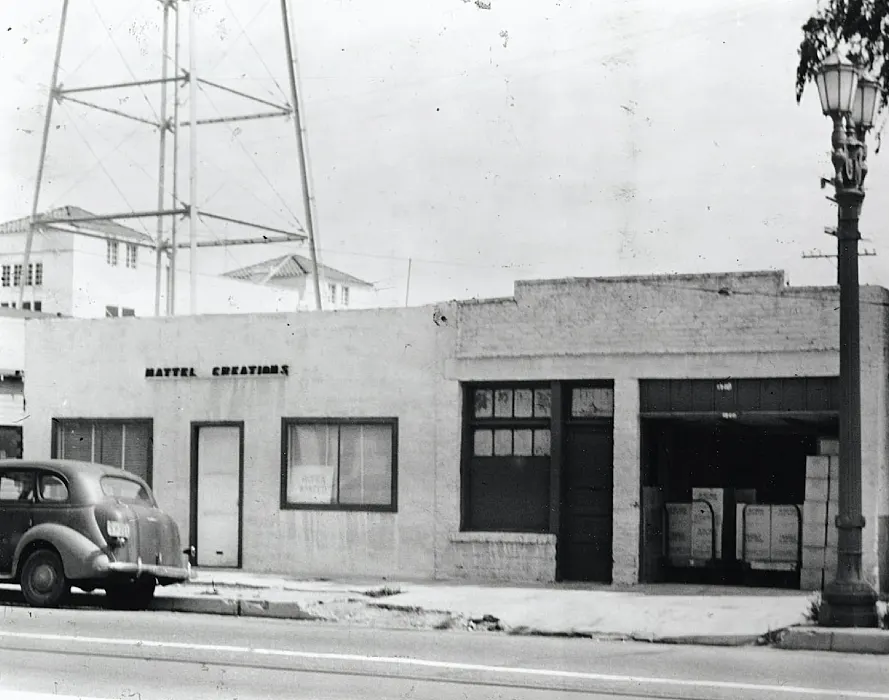
Mattel’s first big hit came in the form of the "Uke-a-doodle," a child-sized ukulele, which was followed by a series of successful products, including toy guns and musical instruments. The company’s innovation was further demonstrated in 1955 when it became a year-round toy manufacturer rather than one that relied solely on Christmas sales. They did this through a groundbreaking move by sponsoring the "Mickey Mouse Club" television show, thus directly marketing to children through the relatively new medium of television, an early example of an online startup success story before the digital age.
However, Mattel's most iconic product was born out of Ruth Handler’s observation of her daughter playing with paper dolls and imagining them in adult roles. This insight led to the creation of Barbie, named after her daughter Barbara, introduced at the American International Toy Fair in 1959. Barbie was a revolution in the toy industry—a three-dimensional doll with which girls could act out their aspirations for the future, and it became a cornerstone in the narrative of start-up business success stories.
Barbie's success was astronomical and laid the groundwork for Mattel to become the toy giant it is today. It spawned countless other products, including the introduction of Ken, named after Ruth’s son, and a host of other companions and accessories. Mattel also expanded its portfolio with other popular toys like Hot Wheels, which became one of the most famous toy car lines ever produced.
Today, Mattel is one of the largest toy companies in the world, with a brand portfolio that includes Fisher-Price, American Girl, Thomas & Friends, and many more. The company has been recognized for its commitment to innovation, safety, and quality in the creation of toys that educate, entertain, and inspire children across the globe, embodying the essence of the best way to start a business and continue to thrive as a leader in the industry.

10. Maglite

The story of Maglite is a narrative that shines a light on the American dream realized through precision engineering and a commitment to quality, standing as one of the most inspirational startup success stories. Anthony Maglica was the mastermind behind the Maglite brand, which began in a small garage in Ontario, California. Born in New York and raised in Croatia, Maglica returned to America in the 1950s with little money and no high school education. However, he had a strong work ethic and a keen mind for mechanical problem-solving, traits often found at the heart of startup success stories.
He started a one-man machine shop called Mag Instrument in 1955, and for years the business was primarily focused on precision parts for industry, military, and aerospace clients. It wasn't until 1979 that the Maglite flashlight was introduced, changing the course of the company forever and adding a new chapter to the book of inspirational startup stories. The Maglite was designed to be a rugged, durable, and reliable flashlight that could be used by professionals in demanding environments, epitomizing the best startup success stories.
The design of the Maglite set it apart from its competitors. It was made from aircraft-grade aluminum, featured a beam that could be focused by rotating the head, and was waterproof and shock-resistant. Its distinctive design and build quality were so renowned that it became a standard issue among law enforcement agencies and emergency services, making it a beacon among motivational startup stories. Moreover, the company made a commitment to keep manufacturing in the United States, even when competitors moved production overseas, a decision that has been central to many American startup success stories.
Today, Mag Instrument continues to produce Maglite flashlights, and they remain a popular choice for professional and everyday use. The company has expanded its product line to include a variety of sizes and styles, including LED versions. The Maglite brand stands as a beacon of American manufacturing prowess and the pursuit of excellence, illuminating the path for future entrepreneurs and adding to the rich tapestry of inspirational startup success stories.
The stories of Yankee Candle Company and Maglite conclude our overview of companies that started in a garage and illuminate the spectrum of innovation and entrepreneurship. Each company’s narrative, from scented candles to durable flashlights, reflects the diversity of American ingenuity and the entrepreneurial spirit that turns simple ideas into successful enterprises, embodying the essence of the best startup success stories.

Conclusion
up business success stories make people believe that nothing is impossible and you can start your dream company even in a garage. Garage startup success stories or tech startup success stories help people gain confidence and propel their own business ideas. Among these inspiring narratives, many have been nurtured by the 50 best startup accelerators, proving you don’t need a fancy office to dream big! These startups teach us something very important: you don’t need a fancy office to dream big! If you're seeking guidance and support on your entrepreneurial journey, consider exploring the services offered by the 10 Best startup consulting firms to help turn your vision into reality.
These stories are a symbol to show that it’s okay to face challenges. But mistakes are not the end, they are the chances to learn better. Think of these stories as your motivation. Whether you're working in a garage or a coffee shop, remember every big company was once small. Enjoy the journey, be proud of small successes, and dream big. And in the world of entrepreneurship, these Top 100 Startups to Watch in 2024 are the shining beacons of inspiration.






